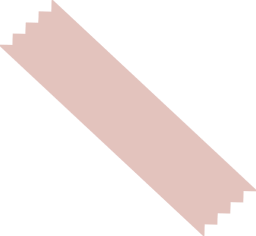Healing Wounds I Didn’t Know I had: My Full-Circle Breastfeeding Journey after a Breast Reduction
Written by Amy Pruitt
I had really big breasts growing up. Like, problematically big. This is a trait among the women in my family. My grandmothers, aunts, mom, sister, and I were all in DD territory or above despite being otherwise average size. I had to wear two sports bras to work out, and even that was inadequate to control the bounce. I could literally be wearing no makeup and a giant sweatshirt and get catcalled on the street – you get the idea.
By the time I was a junior in college I’d had enough, and I convinced my parents to let me get a breast reduction. During the pre-surgical consultation, the plastic surgeon told me there was a chance this could affect my ability to breastfeed, should I ever want to. He told me my milk production might be unaffected, it might be partially affected, or I might not be able to breastfeed at all. To my 20-year-old self, nothing on earth seemed more remote than motherhood, so it was a chance I was willing to take.
I thoroughly enjoyed my new, smaller breasts for more than a decade, and then in 2016 my first son was born. Because we knew breastfeeding might be an issue, a lactation consultant came in to see how everything was going. My baby was doing his part perfectly! He was latching and creating a seal nicely, and his tongue wasn’t tied or doing anything it wasn’t supposed to. However, even within the first three days after delivery it was clear I wasn’t making enough colostrum/milk to sustain him, so I was introduced to my good buddy, the breast pump.
Due to our son’s jaundice we were in the hospital for four days, and then we came home to the fresh hell that is the nurse/bottle/pump feeding schedule. For the next several months, feeding the baby was an up-to-two-hour ordeal that repeated itself about five times a day on a continuous loop. First I would nurse – because the goal was to give him as much milk “straight from the source” as possible. This was obviously good for him, and it was also supposed to give me the best chance at maximum milk production. Step two was bottle feeding with any saved breastmilk from the last cycle, and then formula to supplement if necessary. The final step was me pumping as much as I could to encourage production, and to hopefully create an extra supply of milk that we could then freeze (spoiler: I never had enough to freeze).
Heartbreakingly – although completely understandably – my son started to show a preference for the bottle. While I totally understood this on an intellectual level, my hormone-ravaged new mom brain took it as confirmation that I was an utter failure as a mother, and I would feel searing guilt and anger (at myself) whenever he refused to latch. As a result, when he was six months old we moved to a brand new world of hurt: the pumping-only schedule.
Taking nursing out of the equation should have made things easier, right? What it actually did was turn my guilt up to eleven at the fact that I was no longer physically breastfeeding him, and it also increased the immense and unrealistic pressure I had placed on myself to make enough milk to sustain him with minimal formula supplementation (spoiler: that wasn’t physically possible for me). In order to have any hope of doing that I had to maintain the every three hours pumping schedule. As a new mom, there’s nothing worse than waking up at 1 & 4am to a vibrating phone alarm under your pillow so you can sneak past your sleeping newborn to go pump by yourself in the living room. This was the worst of both worlds: the guilt of bottle feeding, and the inconvenience of pumping.
Two years later my second son was born, and in the intervening time I had somehow convinced myself to try this whole mess again. The lactation consultant told me that sometimes more milk comes in with subsequent pregnancies, so we were hopeful. We proceeded with breastfeeding and pumping. Then, when my son was three days old we noticed that something was clearly not right with him: he was getting lethargic, and his urine was dark. I suddenly realized what was happening: he was dehydrated! He was weak and hadn’t been crying for more food, so we didn’t realize how hungry/thirsty he was. We hadn’t even had the chance to buy formula yet, and we didn’t know what to do for him.
In this instance, big breasts came to the rescue: My sister had given birth to a baby five months before me, and she (like my mom and the rest of the women in our family) made enough milk to feed the whole town. She rushed home and got us a bag of her frozen milk, and we heated it up and gave it to little man. He gulped it down like his life depended on it, and in that moment I was too thankful to feel guilty.
It was right then – looking down at his tiny frame just guzzling that borrowed milk – I realized two critical things at the same time. One: I had been traumatized by my first breastfeeding experience. I was starting to feel the same feelings of guilt, pain, anger, and shame rise up in me, and I wanted no part of it. Two: I realized I had the choice to LET. THAT. SHIT. GO. I sat there watching my baby’s energy return, and I realized that it didn’t matter HOW I fed him, only that I fed him. Do you think I cared that I was giving him someone else’s milk? Do you think he cared?
Getting clear about what really mattered allowed me see how ridiculous it was to put exclusive breastfeeding on such a pedestal. I was (unknowingly) starving my baby by trying to hold onto an ideal that I knew from the beginning was unlikely to be my reality. I had internalized the messaging that if I really wanted to do what was “best” for my child, I would do things this way. I am standing before you on a proverbial soap box and telling you: FED IS BEST. That baby does NOT care if he is being given the finest artisanal vegan organic whatever – he just cares that he is fed when he is hungry.
I had NO idea how enormously draining feeding a newborn could be – how physically, emotionally, and socially wrought it was. Please take this as reassurance whatever choice you make is the right choice, and that sometimes what you plan has to change in order for you to maintain your and your baby’s wellbeing. I’ll end with the best parenting advice I’ve ever received, from an older, wiser mama:
“Put the books down. Your only job is to love that baby. If you just listen to him and love him, there’s no way you can do it wrong.”
*********
Motherhood for Me is here to create a better motherhood community. A place without judgement, mom-shaming, or condescending articles telling you what to do. We are a place for you to come as you are, read about what other mamas are going through, share your own stories (if you want,) and provide opportunities for you to find camaraderie with other mothers. Please check out our other mama submitted stories, sign up to receive email alerts when we publish a new one, and spread the word to all your mama friends. We truly appreciate your support and you being here. Thank you!
***************
Healing Wounds I Didn’t Know I had: My Full-Circle Breastfeeding Journey after a Breast Reduction was written by Amy Pruitt, founder of The EczeMama Club, a private support network just for food and allergy moms.
If you’d like to learn more about Amy and / or The EczeMama Club, click here!




